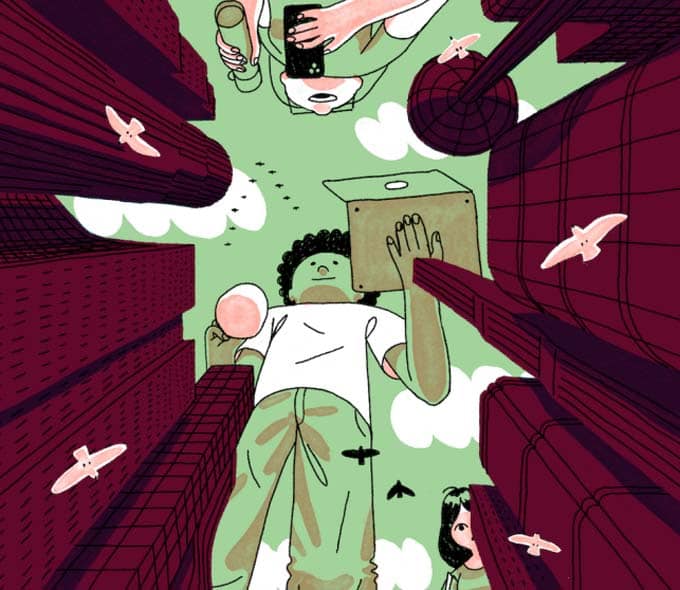Forecast for the working world 2022
At the turn of the year, Laura Ryan, Director of International HR at Dropbox, has written a guest post about the working world of the future. She makes three predictions for 2022.

The world of work has changed radically in the last year and a half. The pandemic has both spawned new trends and accelerated existing ones in such a way that we now find ourselves catapulted into a completely new HR landscape. While 2020 was all about quick turnarounds, temporary fixes, and for many, adaptation for sheer survival, in 2021 we've seen companies use the lessons learned in the early months to boldly implement long-term change. As a result, the future of work has changed forever - and so here is my prediction for top trends for business and HR decision makers for 2022.
Forecast 1: Red card for 9-to-5
Full focus on flexibility! New flexibility has become the paradigm, whether realized through hybrid forms of work or full remote working. Over the past year, employees have come to know the freedom of no longer being tied to a specific location to complete their tasks. What initially took some getting used to for many has now become the law. Traditional notions of presenteeism have finally proven irrelevant.
Companies that resist this change will have little chance of prevailing in the war for talent. A survey from the Opinion research company Civey on behalf of EY Real Estate found that 90 % of people would like to work remotely, at least part-time or full-time. In addition, a new wave of resignations is emerging across Europe, of employees leaving their jobs in search of greater flexibility and a sense of purpose. This is challenging companies to rethink and move away from a corporate culture or working time strategy where employees are measured by their presence from 9am to 5pm.
I predict that the number of companies offering more flexibility in terms of how and where employees want to work will increase dramatically. And even the most traditional industries will adapt to this.
Prediction 2: Rejection of the fixed place of work
More knowledge workers have moved in the past 20 months than ever before, and this trend is set to increase. According to a Bitkom study one in five professionals (21 %) would move if they worked mostly from home in the future. And this opens up great opportunities for employers who are flexible in their choice of work locations. Remote work has a huge impact on the mobility of talent.
But to make location-independent collaboration successful, companies need to rethink their talent strategies and collaboration tools. After all, employees in different locations need different tools. Recent Investigations of Dropbox with the collaboration of Enterprise Nation found that video conferencing, cloud storage, file sharing and simultaneous editing software, for example, were business critical for business continuity during the pandemic.
I predict that the market for simple, easy-to-use document workflows that eliminate or reduce friction in globally distributed, location-independent work will continue to grow strongly.
Forecast 3: Clear extension of asynchronous communication
When the pandemic first hit, staff everywhere were quickly gripped by 'zoom fatigue'. Days of video calls sapped our energy - and most importantly, they got in the way of meaningful work. Unnecessary meetings are one of the biggest disruptors to a productive and effective workday, and it's up to all of us to change that. By encouraging employees to remove all unnecessary meetings from their calendars and schedule live conversations more intentionally, employees can more easily shift from "all-day synced" to "asynchronous by default," bringing more flexibility and greater focus to their day. However, the importance of live conversations remains - and the magic lies in teaching employees how to recognize when a quick zoom or phone call is (still) of value. To support this, new frameworks such as the "Core Collaboration Hours" is needed. By establishing clear time slots for asynchronous and real-time collaboration, employees can work more effectively with their colleagues across time zones, while freeing up valuable time to focus on their favorite projects and personal lives. I predict the companies that take the step to change their culture towards "asynchronous as standard" will have the best success in attracting new talent!
Personnel management: From referees to playmakers
In the last 20 months, the role of HR has also changed dramatically around the world. Before Corona, HR was a necessary corporate department, often just keeping things running smoothly behind the scenes. But as the world of work has changed, so has HR. In these unprecedented, challenging times, HR leaders have navigated the ship through the storm, finally earning a well-deserved seat at the leadership table. Now that their value as strategic thought leaders has been proven, their influence will remain recognized beyond HR. I clearly predict that by 2022, many more HR leaders will be involved in business decisions across the board, and their role will change from outside referees to true game changers.

To the author:
Laura Ryan is Director of International HR at Dropbox, the content collaboration platform that helps organize work in the new world of distributed work. Laura Ryan has more than 16 years of experience in the HR industry.









